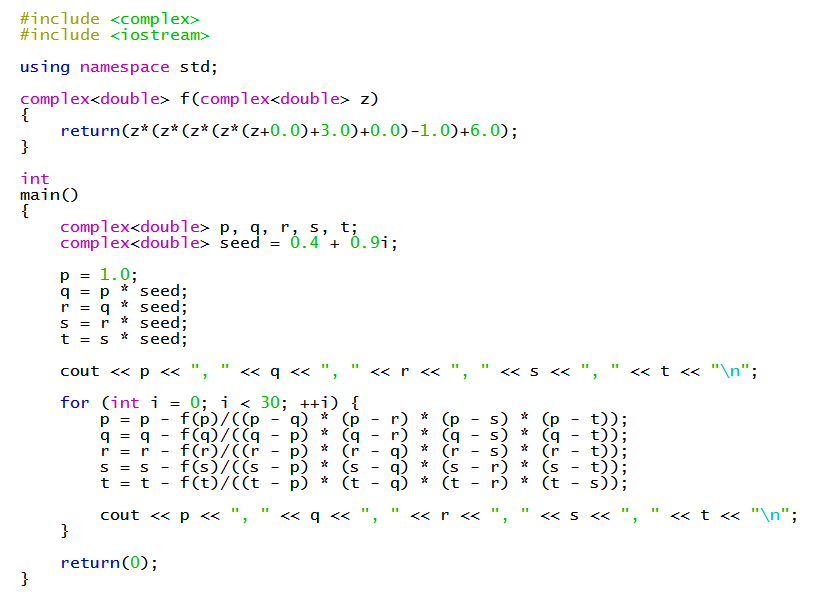How do you find all the zeros of #f(x)=x^5+3x^3-x+6#?
1 Answer
Find there are no rational zeros.
Use Durand-Kerner or similar to find approximations.
Explanation:
By the rational root theorem any rational zeros of
That means that the only possible rational zeros are:
#+-1# ,#+-2# ,#+-3# ,#+-6#
None of these work, so
In common with most quintic polynomials, the zeros are not expressible in terms of
#x ~~ -1.17826#
#x ~~ -0.202554+-1.89313i#
#x ~~ 0.791684+-0.882051i#
See https://socratic.org/s/avxUUEiJ for another example.
Here's a sample C++ program that implements the Durand-Kerner algorithm for this example:


